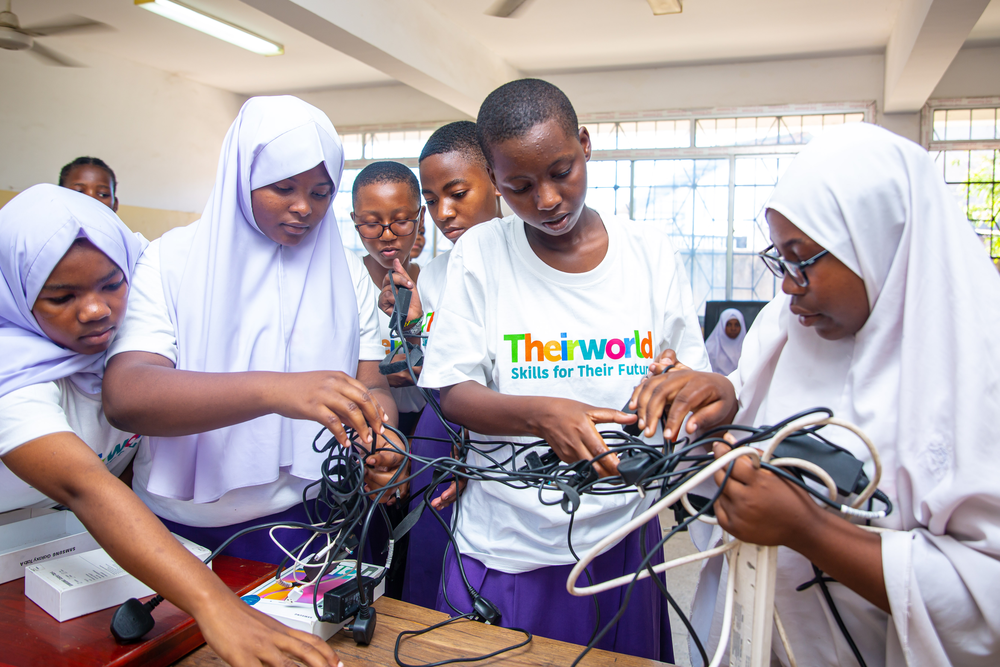Break the bias to help girls into education and opportunity

Theirworld hosted an International Women’s Day event which looked at how to overcome the barriers that hold back girls.
Jump to
How do you break down the barriers that hold back girls? One way is to make sure that boys are taught from a young age about gender equality.
That is what Indian activist Kashvi Chandok told viewers at an Instagram Live event held by Theirworld to mark International Women’s Day on March 8.
Kashvi, a Global Youth Ambassador for Theirworld, said: “Leading the change for gender equality can only be done when we start teaching both boys and girls about feminism, about the gender bias that exists from the very start.”
The event was hosted by best-selling author, broadcaster and journalist Lorraine Candy and also featured Theirworld Chair Sarah Brown and Yasmine Sherif, Director of the global fund Education Cannot Wait.
This year’s International Women’s Day theme was “Break the Bias”. Sarah set the scene by explaining how gender bias affects the education opportunities of millions of girls around the world, who are at risk of child labour, early marriage and other discrimination.
Kashvi added: “When it comes to education, particularly for women from low-income backgrounds and conservative families, they are not given similar access to resources as their brothers. That generates a trickle-down effect of discrimination against girls and the kind of education they can receive – not just in schools but also at home and the support that they get from their parents.”
Watch the event here
“Girls are involved in a lot of unpaid labour at home, where they are taking care of the siblings, doing household chores. So that does not give them the same choice as their brothers to indulge in education or extra-curricular activities.”
Yasmine agreed that education on gender equality must begin very early. She said: “It starts at home and in pre-primary, then through primary and secondary grades. That’s the formative years for boys to look at girls as equal and not as stereotypes of what boys can do and girls can do.”
She said the pandemic had increased the number of girls in crisis and conflict areas who are out of school to 60 million. That could rise with the Ukraine invasion, where most of the two million refugees are women and children.
Yasmine said: “Ukraine had 100% gender equality in the education system. Now with this conflict we are creating so many dangers for girls.”
Education Cannot Wait, which has worked in 42 crisis-affected countries, ensures that 60% of its investments go towards girls’ education. Yasmine added: “We need affirmative, bold action. We have a laser focus on the girls.”
Sarah said everyone can play a part in ending discrimination against girls and women.
“International Women’s Day is such a good moment for galvanising that support,” she said. “We have to ask more of political leadership around the world – they are totally able to unlock the political will and unlock the funding.
“We need to use our voices to appeal to the men (and women) who hold power, who hold the purse strings, who hold the opportunities. Those voices make a difference.”
Join Theirworld’s mission to end the global education crisis by signing up for our newsletter.